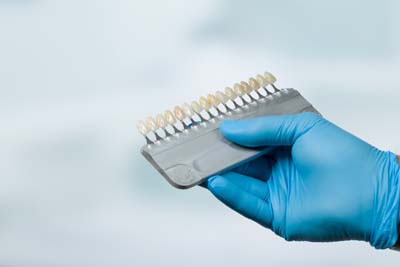Are My Bleeding Gums a Sign of Gum Disease?

Most people don't give a second thought to gum disease. However, while brushing your teeth, maybe you noticed a slightly pink tinge when you spat out. You also discovered some bleeding while flossing. Although minor bleeding may not seem like a severe problem, recurrent gum bleeding is a condition you should never ignore. Bleeding gums is a result of several factors, including gingivitis and pregnancy. Altering your oral care regimen can also cause gum bleeding initially.
How gum disease causes bleeding gums
If you do not maintain good oral care routines such as regular brushing and flossing, you give food debris a chance to bind with bacterial plaque and accumulate in your teeth grooves. The plaque is sometimes visible as a white or yellowish film on the gums. As the bacteria accumulate and grow, they cause gum irritation, leading to gingivitis. Gingivitis is the first stage of gum disease, and the typical symptom is bleeding gums. Other signs of gingivitis include sensitive gums, bad breath and red gums.
If you fail to treat gingivitis, it will worsen to the point where the gums may start pulling back from the teeth, creating pockets that allow bacteria to accumulate and penetrate the teeth. As more bacteria infect the tissues, your oral health degenerates considerably into periodontitis. Fortunately, the early stage of gum disease is reversible. The dentist can clean away the plaque and bacteria deposits from your teeth. The following are ways to prevent bleeding gums:
Preventing gum disease and bleeding gums
Improve your oral hygiene
As mentioned earlier, the most popular cause of bleeding gums is plaque accumulation on the gumline. Failure to clean the plaque immediately will allow it to harden into tartar. The best way to stop plaque in its tracks is to improve your oral care regimen.
Make sure you brush your teeth at least twice daily using a fluoride toothpaste. Floss daily, and ensure you visit your dentist regularly, not just when there is an issue.
Check your dental tools
If your oral hygiene is optimal and you still go for your biannual dental appointments, then your oral care tools may be responsible for making your gums bleed. You may feel that a toothbrush with hard or medium bristles will clean your teeth better, but they could actually be irritating your gums and causing them to bleed. According to the American Dental Association, you should use a soft-bristled toothbrush to clean your teeth to prevent irritation.
Sometimes, it may not be the tool, it could be how you are utilizing it. If you have not flossed recently, start doing it again. You might notice some blood on your gum line, but that will stop. Remember to be gentle and try not to press the floss too hard.
Visit the dentist
If improving your oral hygiene and adopting a healthier diet did not stop the bleeding gums, then you need to book an appointment with the dentist. The dentist will evaluate your gums and teeth to know if you are dealing with advanced gum disease. If treatment is required, you may be referred to a periodontist, who is specialized at treating gum disease.
Request an appointment here: https://dentalesthetics.net or call Manhattan Beach Dental Esthetics at (310) 923-7064 for an appointment in our Manhattan Beach office.
Check out what others are saying about our services on Yelp: Read our Yelp reviews.
Recent Posts
Dental veneers are a popular way to transform your smile and a common cosmetic dental service offered by general dentists. These thin, shell-like porcelain or composite resin covers go directly over the front of natural teeth after a quick preparation process. Because of their ability to make teeth appear uniform in shape, size, and color…
Your cosmetic dentist can transform your smile by providing tailor-fit treatments. Creating your care plan will depend on your features. Doing so will have more natural results. Here is how your cosmetic dentist tailors specific treatments to your features.Procedures in this field need more than a dentist’s technical skills. The cosmetic dentist must also possess…
If a lost tooth is not replaced by replacement options like dental implants, you may find normal oral functions like eating and speaking somewhat challenging. The smile’s alignment and appearance will also be affected, but that is not all. Tooth loss causes bone deterioration. Dental implants can halt the progression of bone loss, but the…
Replacing lost teeth with a dental bridge has many advantages. Tooth loss does not just affect the appearance of the smile, but also the ability to talk and chew easily, teeth alignment, and the person’s confidence. A dental bridge closes the gap between teeth and prevents further damage. Read on to find out how bridges…


